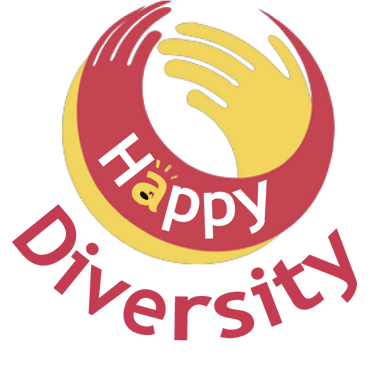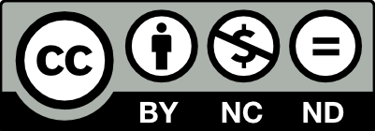

We’re proud to share the results of our Project Talks in Spain and Germany. Together the talks reached 83 participants (41 in Spain, 42 in Germany), offering practical guidance, emotional support and participatory tools to parents and caregivers of children with SEN, disabilities, chronic conditions and migrant/refugee backgrounds. These sessions combined clear information and creative methods to build confidence, strengthen family support and promote inclusion.
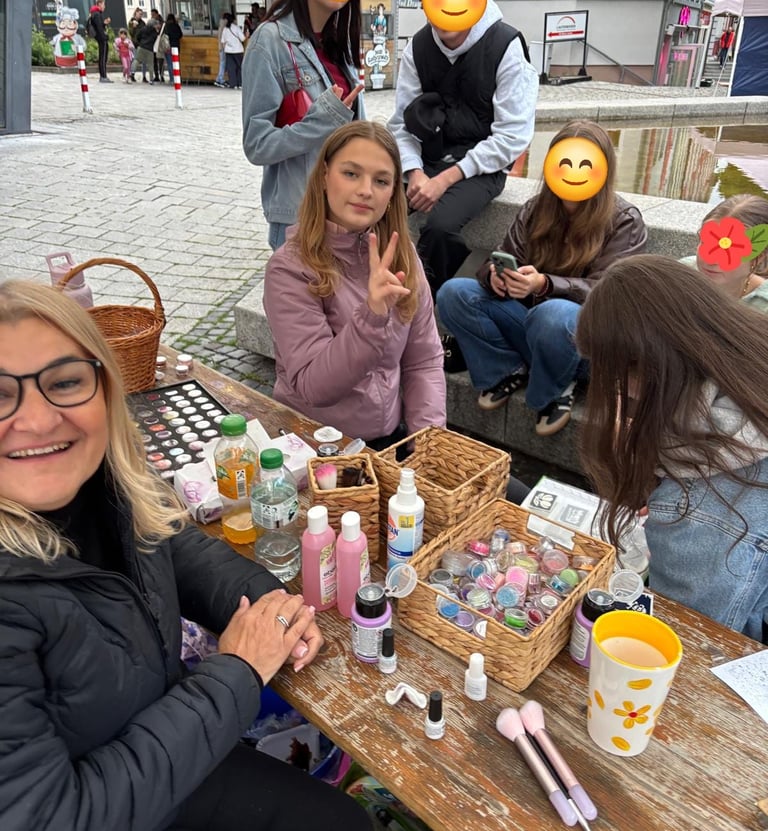

Across Spain and Germany we are helping parents and caregivers of children with disabilities, SEN, rare or chronic conditions and migrant backgrounds to feel stronger, better informed and connected.
Through group workshops, practical tools and emotional support, families become key agents in their children’s holistic development.
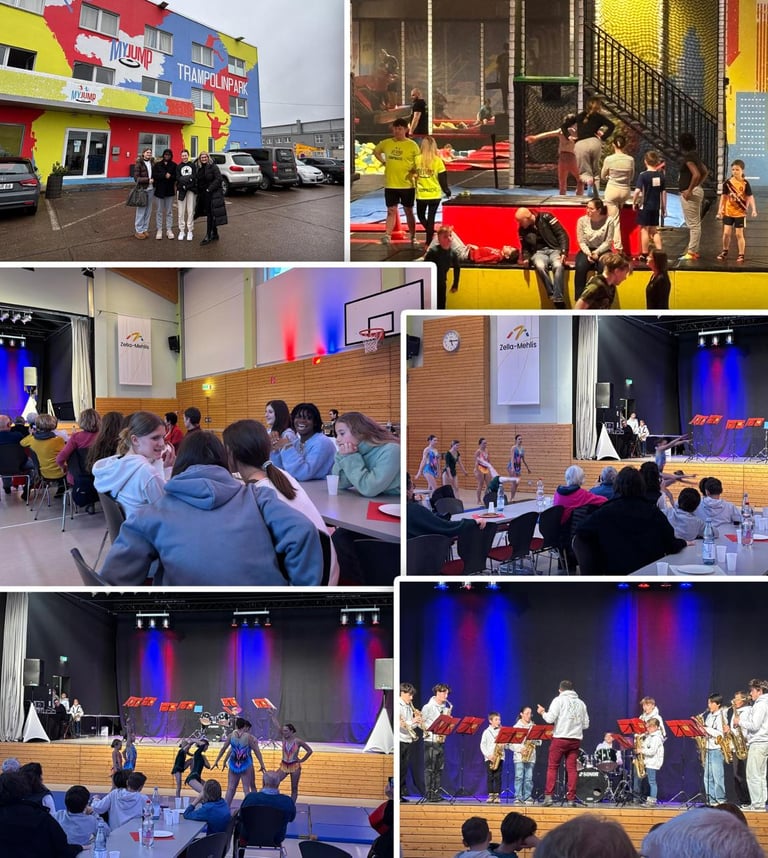

The “Happy Diversity” project promotes inclusive education by involving social integrators in community cultural and leisure activities. Using a person-centered, participative methodology, it supports vulnerable groups, adapts activities to individual needs, and coordinates volunteers to ensure full participation for all.
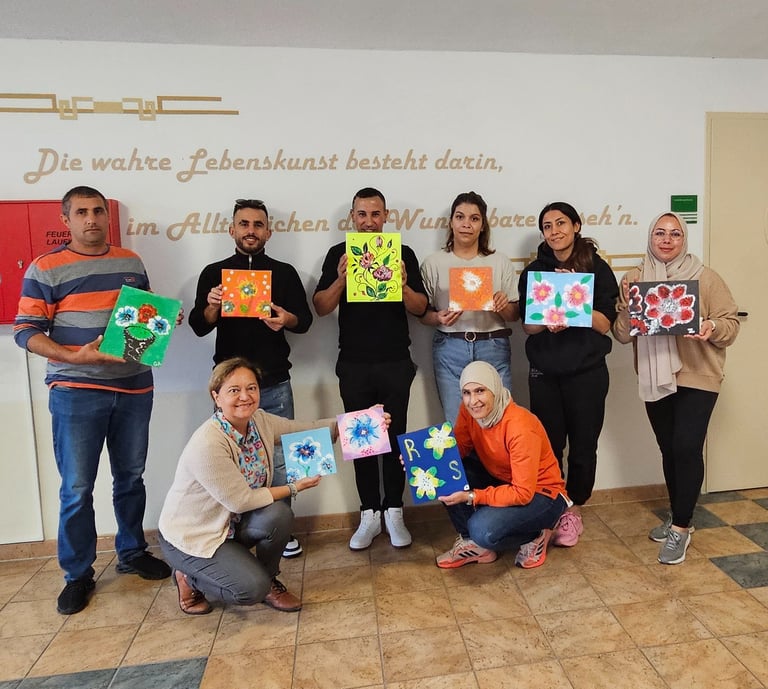

This project brings together two european organisations to support parents of pupils, including those with SEN. This is collaboration through meetings, shared training, and online tools to exchange expertise in disability, rare diseases, migration, and inclusion. The aim is to build sustainable pathways for more inclusive education.
1. Project Talks
2. Empowering Sessions
3. Pilot Leisure and Cultural Workshops with Vulnerable Groups
4. International Alliance for Diversity Care (Exchange of methodologies and development of itineraries)
5. Multiplier events
The “Happy Diversity” project addresses the needs of parents’ and carers’ associations and shares results with relevant stakeholders, including public and private entities working with vulnerable groups. One-day dissemination events take place in each partner country, showcasing project outcomes, good practices, and learning approaches. The events include preparation, delivery, and follow-up activities, engaging at least 100 participants and promoting awareness of social inclusion and effective educational strategies.
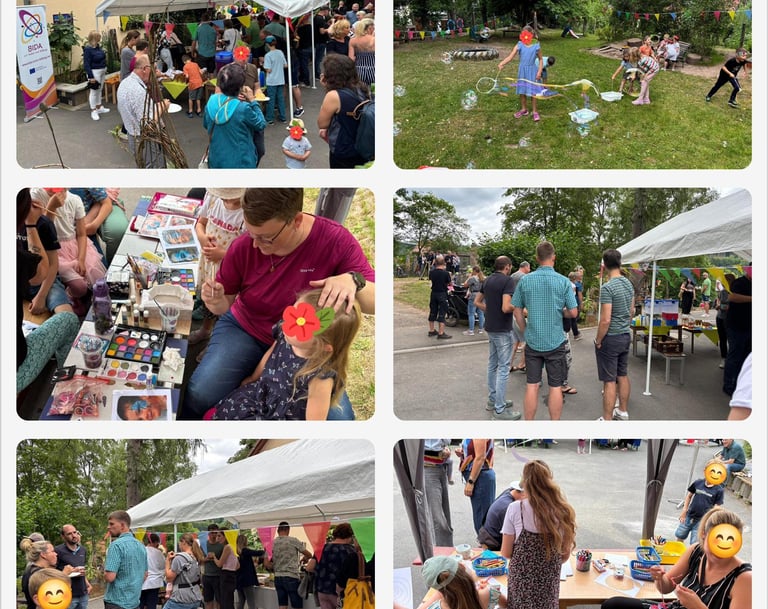

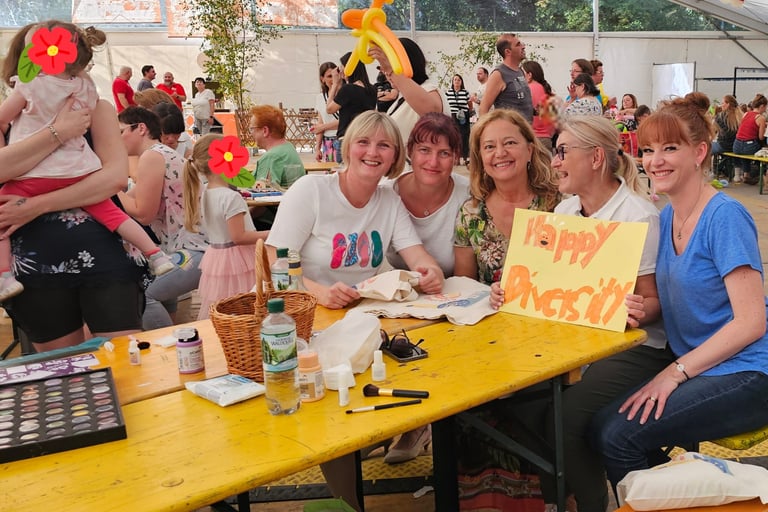

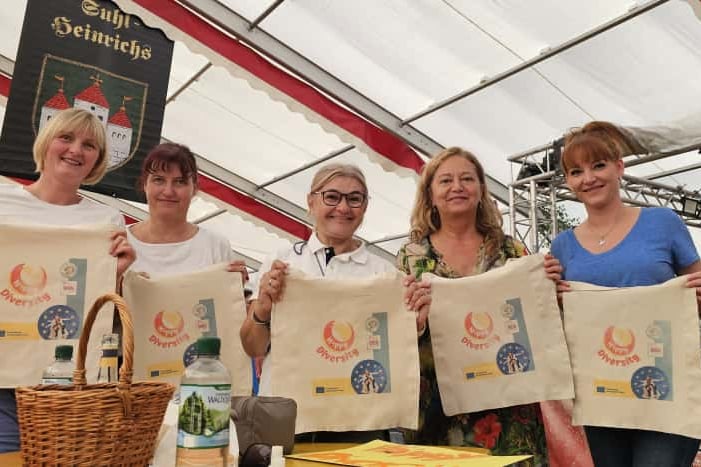

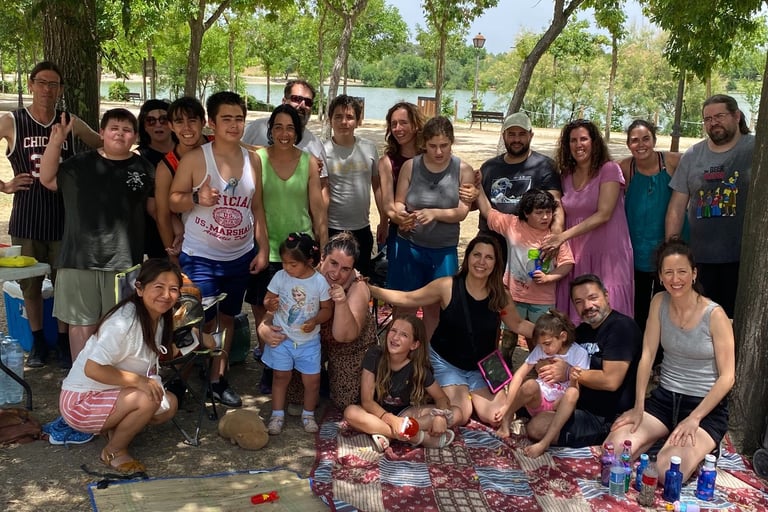

“Stronger families, brighter futures!”
“6 Project Talks. Real tools. Real change for parents in Spain.”
In Spain, 41 participants joined 6 Project Talks that mixed clear information with participatory activities.
Topics covered included:
• Students with Special Educational Needs and national regulations (LOMLOE)
• Emotional self-regulation to boost learning
• Building self-discipline, responsibility and time management at home
• Promoting inclusion and strategies for functional diversity in schools
• Developing educational autonomy — “learning to learn”
• Effective collaboration between families and educators
Most participants (≈95%) reported high satisfaction. Highlights: many said they finally felt heard, understood legal terms better, and found small changes that have big effects.
“4 Project Talks. Creativity & support for families in Germany.”
In Germany, 42 participants attended 4 Project Talks (delivered during intercultural days and local events), using creative and experiential methods such as drawing, collage, movement and restorative talking circles.
Main themes included:
• Needs of parent & carer associations — access to services and peer support
• Emotional support for families — strategies for coping with stress and anxiety
• Promoting independence — inclusive education and future planning
• Planning for the future — autonomy and long-term preparation
Feedback was very positive: sessions 1, 2 and 4 reported >90% satisfaction, and session 3 reported >80% satisfaction. Participants highlighted the inspiring atmosphere, practical tips and the value of peer exchange.
“Knowledge + connection = practical impact.”
Key results from our Project Talks:
• Total participants: 83 (Spain 41 / Germany 42).
• Spain: ~95% high satisfaction across topics; participants valued clarity, emotional connection and practical strategies.
• Germany: Sessions reported >90% satisfaction (sessions 1,2,4) and >80% (session 3); participants appreciated the creative approach and community-building.
Voices from the groups:
“This seminar makes me a better version of myself.”
“I felt heard for the first time in a long while.”
“Little changes can have a big impact.”
These results show that combining solid information with safe, participatory spaces empowers families to act with more confidence.
“Next steps: scaling the Project Talks.”
Happy Diversity Project Talks showed clear demand and strong outcomes. Next steps:
• Expand talks to more schools and community centres.
• Continue blending technical content with creative and participatory activities.
• Explore offering childcare during sessions and add targeted one-to-one support.
We’re grateful to the 83 participants who shared their time and voices — their feedback will guide the next phase.
Empowering Families of Students with SEN
Spain Sessions
In Spain we launched 8 group sessions designed with 10 caregivers, not just for them.
Topics included:
• Managing tantrums and anger
• Sibling dynamics & sharing responsibilities
• Couple conflicts around caregiving
• Future planning for children with SEN
• Relaxation techniques & social resources
All in a safe space where parents could share experiences and feel supported.
Germany Sessions
In Germany, 10 migrant and refugee families took part in 8 creative group sessions.
We combined drawing, collage, movement and restorative circles to encourage self-expression and peer support.
Families learned to manage emotions, strengthen sibling relationships, plan for the future, relax under stress, improve listening and find community resources.
Impact & Results
Next steps for the Empowering Sessions:
The Empowering Sessions make a difference!
• Spain: 100% felt more supported, 90% gained new tools, 80% improved emotional coping.
• Germany: 100% felt more supported, 85% gained new tools, 85% improved emotional resilience.
“I felt much less alone after joining the group.”
“The sessions helped me feel stronger and more confident.”
• Expand to more schools and centres
• Add one-to-one family counselling
• Keep blending verbal & artistic expression
• Explore childcare options during sessions
Families already feel empowered, connected and better prepared to advocate for their children. We recommend replicating this model in other regions.
ACTIVITIES
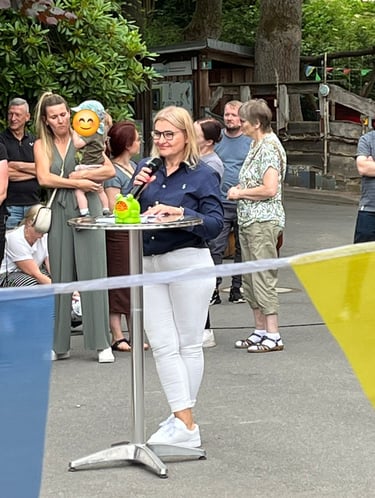

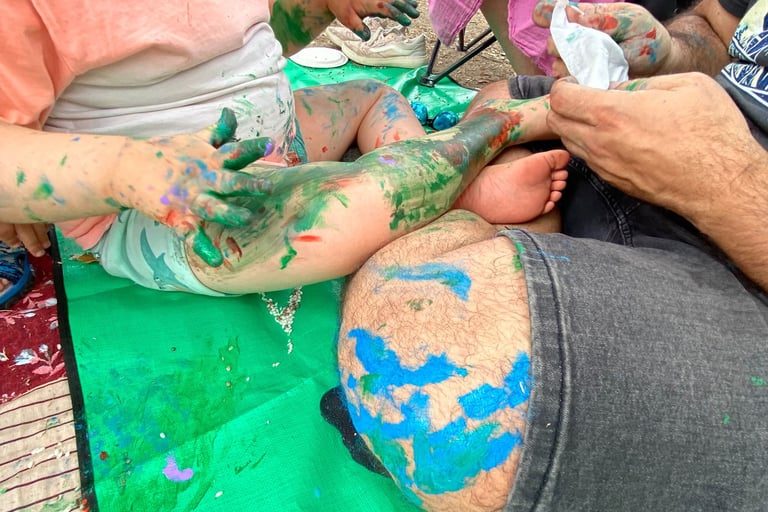

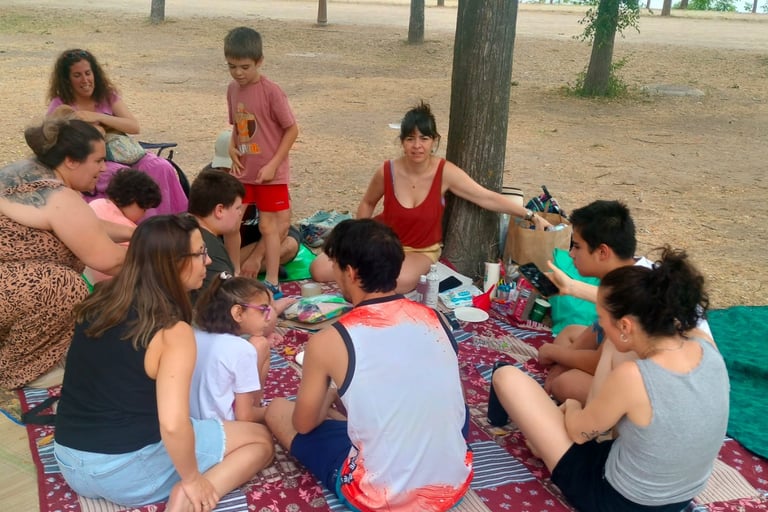

Diversity
Inclusion
Supporting educational diversity
